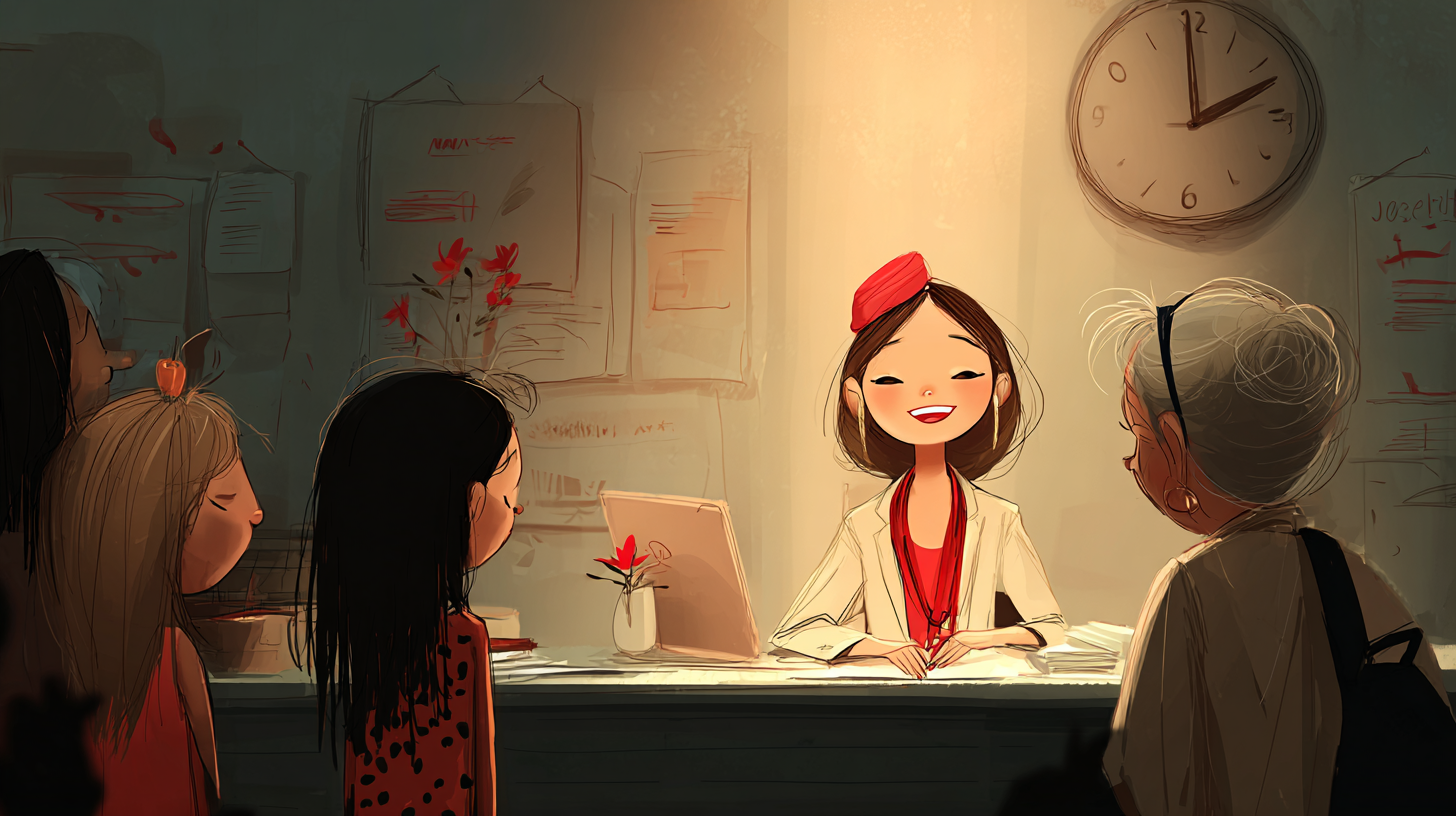A happy and enjoyable feeling
楽しくてうれしい気持ち
以下は英単語 “pleasure” に関するストーリー型学習コンテンツです。まずは大枠の意味を理解して最後の文章で確認しましょう。
主な意味(main meaning)
| 品詞 | 意味 | 発音記号 (IPA) | 例文 |
|---|---|---|---|
| 名詞 | 喜び、楽しみ | /ˈplɛʒər/ | Reading books is one of my greatest pleasures. |
| 名詞 | 満足、うれしい気持ち | /ˈplɛʒər/ | It was a pleasure to meet you. |
| 動詞(まれ) | 喜ばせる | /ˈplɛʒər/ | The gift really pleasured her. |
語源(etymology)
「pleasure」は中英語の plesaunce(喜び)からきており、さらにラテン語 placere(喜ばせる)に由来。核となるイメージは「心を満たす喜び」。
類義語(synonyms)
| 類義語 | 例文 |
|---|---|
| joy | She danced with joy when she heard the good news. |
| delight | The children shouted with delight at the surprise. |
| happiness | Spending time with family brings me happiness. |
| enjoyment | He finds enjoyment in playing the piano. |
反義語(antonyms)
| 反義語 | 例文 |
|---|---|
| pain | He felt great pain after losing the game. |
| sadness | The movie filled her heart with sadness. |
コロケーション(collocations)
| コロケーション | 例文 |
|---|---|
| great pleasure | It is a great pleasure to work with you. |
| take pleasure in | She takes pleasure in helping others. |
| with pleasure | “Can you help me?” “With pleasure!” |
| reading pleasure | Many people find reading pleasure in novels. |
2項表現(binomials)
| 2項表現 | 例文 |
|---|---|
| pain and pleasure | Life is full of both pain and pleasure. |
| pride and pleasure | He spoke with pride and pleasure about his son. |
英語ストーリー(english story)
The Meeting Full of Pleasure
It was a bright Monday morning at Lisa’s office. She worked at a travel agency, where her job was to arrange tours for families. That day, she was expecting a group of new clients. She was a little nervous, but also excited, because meeting new people always gave her pleasure.
At ten o’clock, a family of four walked into the office. Lisa stood up with a smile and said, “It’s a pleasure to meet you.” The father replied politely, “The pleasure is ours.”
They sat down, and Lisa began to explain different travel plans. She could see the children’s eyes filled with delight (喜び). The mother said, “Traveling gives us so much happiness (幸せ). We really find enjoyment (楽しみ) in learning about other cultures.” Lisa nodded. She felt joy (喜び) in helping families make memories.
As they continued talking, the father said, “We would like to go to Italy. We take pleasure in trying new food and visiting historical places.” Lisa quickly prepared some brochures. She answered their questions with confidence. The family listened with great interest.
During the conversation, Lisa remembered something her boss always said: “Life is made of both pain and pleasure. Travel helps people escape pain and find more pleasure.” Lisa thought that was very true.
When everything was arranged, the family looked very satisfied. The father shook Lisa’s hand and said, “It was a great pleasure working with you.” Lisa replied warmly, “With pleasure. I hope you enjoy your trip.”
After they left, Lisa sat back at her desk. She felt proud of her work. She thought, “Helping people plan their journeys is both my pride and pleasure.”
That evening, Lisa met her friend Emma for dinner. Emma asked, “How was your day?” Lisa explained the meeting and added, “It’s amazing. Work can bring not only money but also pleasure.” Emma smiled and said, “That’s true. Some people only feel sadness (悲しみ) at work, but you have found happiness (幸せ).”
Lisa laughed. “Yes, sometimes work is hard, but I really take pleasure in it. I hope I can continue to feel this way.”
和訳
喜びにあふれた出会い
月曜の明るい朝、リサは旅行会社のオフィスで働いていました。彼女の仕事は家族旅行の手配です。その日は新しいお客さんが来る予定で、少し緊張していましたが、新しい人に会うことはいつも彼女に**pleasure(喜び)**を与えてくれるのでワクワクしていました。
午前10時、四人家族がオフィスに入ってきました。リサは笑顔で立ち上がり、「お会いできて**pleasure(うれしい)です」と言いました。父親は礼儀正しく答えました。「こちらこそpleasure(うれしい)**です。」
彼らは座り、リサは旅行プランを説明し始めました。子どもたちの目は**delight(喜び)で輝いていました。母親は言いました。「旅行は私たちにたくさんのhappiness(幸せ)を与えてくれます。私たちは文化を学ぶことに大きなenjoyment(楽しみ)を感じます。」リサはうなずき、家族が思い出を作るのを手伝うことにjoy(喜び)**を感じました。
話が進むと父親は言いました。「イタリアに行きたいのです。私たちは新しい食べ物を試したり歴史的な場所を訪れたりすることに**take pleasure in(楽しみを感じる)**のです。」リサはすぐにパンフレットを用意し、自信をもって質問に答えました。家族は大変興味を持って聞いていました。
その時リサは上司の言葉を思い出しました。「人生は**pain and pleasure(苦しみと喜び)でできている。旅行は人々が苦しみを忘れ、より多くのpleasure(喜び)**を見つける助けになる。」リサは本当にそうだと思いました。
すべての手配が終わると、家族はとても満足しているようでした。父親はリサと握手して言いました。「あなたと仕事ができて**great pleasure(大きな喜び)**でした。」リサはあたたかく答えました。「With pleasure(喜んで)。よい旅をお楽しみください。」
彼らが去った後、リサは机に座り、自分の仕事に誇りを感じました。そしてこう思いました。「人々の旅を計画することは、私の**pride and pleasure(誇りと喜び)**だ。」
その日の夕方、リサは友人のエマと夕食をとりました。エマが尋ねました。「今日はどうだった?」リサはその出会いを話し、「素晴らしいの。仕事はお金だけでなく**pleasure(喜び)も与えてくれるのよ」と付け加えました。エマは微笑んで言いました。「本当ね。仕事でsadness(悲しみ)しか感じない人もいるけど、あなたはhappiness(幸せ)**を見つけたのね。」
リサは笑いました。「ええ、ときには仕事は大変だけど、本当に**take pleasure in(楽しみを感じる)**の。これからもこの気持ちを持ち続けたいわ。」
Q&A
Q: 「pleasure」と「joy」の違いは?
A: 「pleasure」は食事や旅行のように感覚的・一時的な楽しみを指します。「joy」は心の奥からあふれる大きな喜びで、より感情的で深い意味があります。
Q: 「pleasure」と「delight」の違いは?
A: 「pleasure」は静かな満足や楽しみを表します。「delight」は驚きや感動を伴う強い喜びを表し、より感情がはっきり出る場面で使います。
Q: 「pleasure」と「happiness」の違いは?
A: 「pleasure」は短時間で感じる楽しみや快感です。「happiness」は長期間にわたる幸福感や満足感を意味します。
Q: 「pleasure」と「enjoyment」の違いは?
A: 「pleasure」は出来事や瞬間に感じる喜びです。「enjoyment」は何かをしている過程で感じる楽しみを指します。
Q: 「pleasure」と「pain」の関係は?
A: 「pleasure」は心地よい感覚、「pain」はその正反対で苦しみや不快を意味します。人生の両面を対比して表すこともあります。
Q: 「pleasure」と「sadness」の関係は?
A: 「pleasure」は喜びや楽しみ、「sadness」は悲しみや寂しさで、感情的に対になる言葉です。
Q: 「pleasure」と「take pleasure in」の違いは?
A: 「pleasure」は名詞で「楽しみそのもの」。一方「take pleasure in」は「~を楽しみにする」「~を喜んで行う」という動作を強調します。
Q: 「pleasure」と「with pleasure」の違いは?
A: 「pleasure」は「喜び」という意味。「with pleasure」は決まり文句で「喜んで」「もちろん」という意味で返答に使います。
Q: 「pleasure」と「great pleasure」の違いは?
A: 「pleasure」は普通の楽しみや喜び。「great pleasure」はそれを強調して「大きな喜び」「とても光栄」という意味になります。
Q: 「pleasure」と「reading pleasure」の違いは?
A: 「pleasure」は一般的な喜び全般。「reading pleasure」は読書をすることから得られる特別な楽しみを指します。
Q: 「pleasure」と「pain and pleasure」の違いは?
A: 「pleasure」は単独で「喜び」を意味します。「pain and pleasure」は対になって「人生の苦しみと喜び」という全体的な体験を表します。
Q: 「pleasure」と「pride and pleasure」の違いは?
A: 「pleasure」は単純な楽しみや喜び。「pride and pleasure」は「誇りと喜び」で、単なる楽しみよりも自分の成果や大切なものに対する深い感情を含みます。



コメント